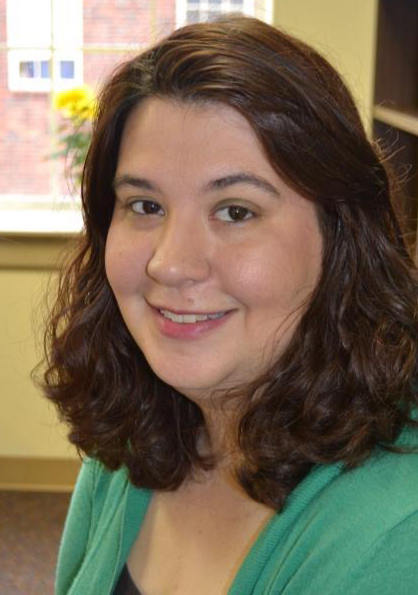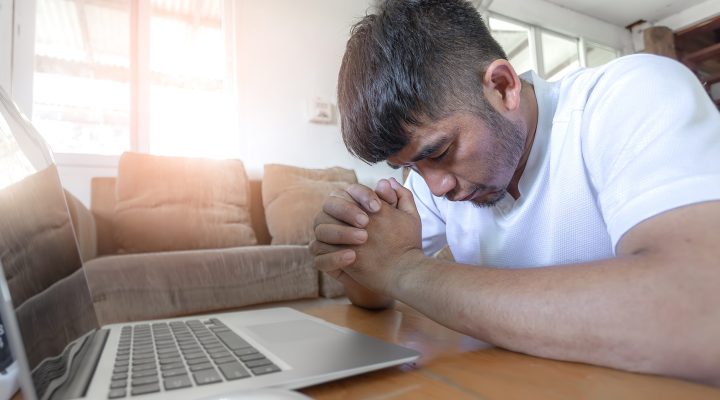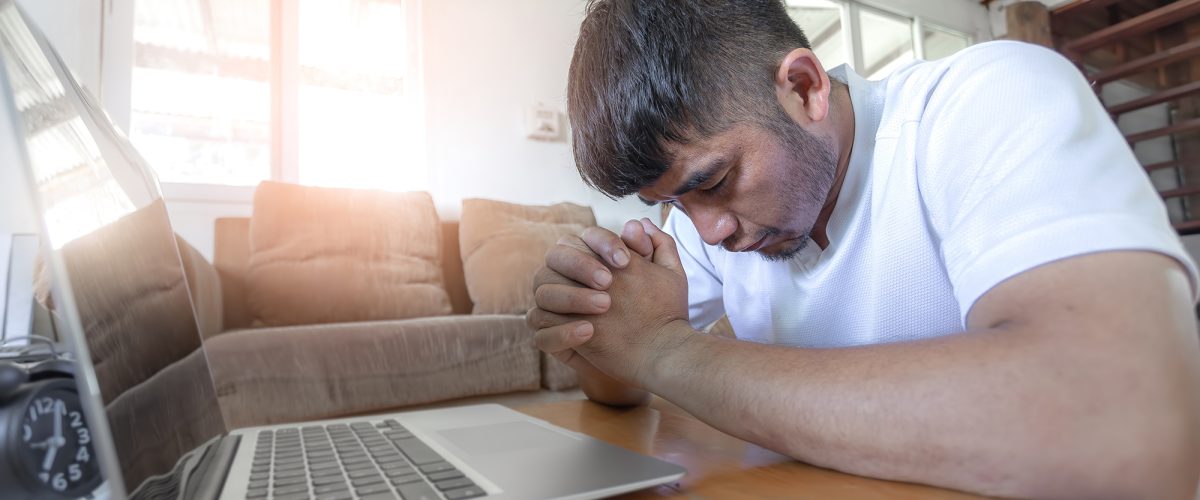I’ve been thinking a lot about a notion that seems to be taking up a lot of space in the collective conscience lately — that the COVID-19 pandemic has harmed Christianity because of virtual worship.
I will admit, that first Easter after the shutdown — which was only supposed to last two weeks — got to me. Holy Week is a central time in the life of the church, and for me, missing the in-person delight of both Easter and Pentecost was a punch to the soul.
However, it was easy for me as a chaplain and bereavement program coordinator to let go of that while working at a busy hospital system during the height of mutations and iterations this virus embraced. Being immersed in the worst-case effects each day gave me an inner resilience to embody understanding of the necessity of continuing to worship from home during Holy Week and Pentecost.
“When we all put ourselves first, no one comes in first.”
Because we live in an individualist society that loves to look out for No. 1, we haven’t yet seen an end to the COVID-19 pandemic, nor have we had a chance to mourn collectively and tend to the trauma of the past two-plus years and counting. When we all put ourselves first, no one comes in first, least of all the immunocompromised and disabled among our siblings in humanity.
Faith communities do well to remember the inherent privilege that the able-bodied inhabit; a privilege that provides most of us with the luxury of being able to say, “I miss my gathered community and am frustrated that not everyone is on the same page.” I understand the frustration, and I also know that frustration by another name is lament. We lament that it’s taking forever to “return to normal.”

Sara Robb-Scott
What is the normal to which we want to return? Perhaps the “normal” full sanctuary of in-person worshippers isn’t the ideal we once thought it was and has given way for worshippers to live into their full humanity, both in person and online. Perhaps we are pining for something that needed to be transformed anyway, when we could be embracing a new way forward.
The work of grief is never truly finished, and once you have endured a loss it stays with you, in some way, for the rest of your life. The ways in which grief becomes a traveling companion throughout our lives change over time, but once a death has occurred or something has been lost, a full return to life as it was before is not possible.
Nothing is ever as simple as “let’s get back to normal because we’ve been giving in to this virus for long enough.” What I hear in the yearning for normalcy is a build-up of grief over these past few years that cries out, justifiably, “I just can’t take any more loss,” and this cry includes the loss of in-person, corporate worship.
What if we viewed the absence of bodies in the sanctuary and more people opting for virtual services as an invitation to a nuanced understanding of Christian faith in practice? Could we embrace and extend compassion; a trauma-informed compassion that understands that bodies carry terror long after the immediate threat has abated? Could we consider the possibility that absent bodies are traumatized bodies, and offer the same love to online worshippers we offer to those gathered to worship in person? What if we let go of the need to control the measures of faith of the people around us and tended instead to our own insecurities? Can we get curious with ourselves and ask, “Why does the option of virtual services bother me so much?”
I say we can and must. Perhaps we’re afraid of the answer. It’s possible that an inner inquiry into what virtual worship can offer people that in-person worship can’t will yield answers that point to deeper systemic problems within our faith communities — problems like accessibility, the level of safety for an autistic worshipper, and health concerns for people with immune-compromising conditions.
As the able-bodied world continues to move ahead with life in efforts to return to some version of what we knew before March 2020, the disabled community knows now more than ever, that disabled bodies are expendable. In capitalism, this ingrained belief is overt. In faith communities longing for the days of old, when Sunday morning worship together was a priority, it’s covert. The demand for a return to “normal” worship practices is masked by terms like “discipleship,” and “mutual edification.”
I’m grateful every day for the virtual worship services my immunocompromised mother was able to attend through her church. She found a vibrant and rich spiritual experience in teaching a Bible class online. Her faith is a model to me, regardless of her presence in a building or her physical proximity to the people with whom she studies her Bible each week. I’m grateful for vaccines that have allowed her to enter her worship space and be among her people. I’m grateful for a leadership at her church and mine that allows her the agency to make a choice.
I’m grateful for nuanced understandings of the fallout of the COVID-19 pandemic and the concurrent pandemics of racism, white supremacy and ableism, which were brought to the forefront in its wake. I’m grateful for faithful ministers and activists who take the task of nuance in the life of faith seriously and engage the world around them with the compassion and love of Christ.
Sara Robb-Scott serves as bereavement program coordinator at WakeMed Health and Hospitals. She and her husband, Andrew, live in Durham, N.C., with their cat, Reesee, and two Guinea pigs, Hillary and Elizabeth. Sara blogs at www.sarainrealife.com
Related article:
A response to Tish Harrison Warren about livestreaming worship | Analysis by Rick Pidcock


